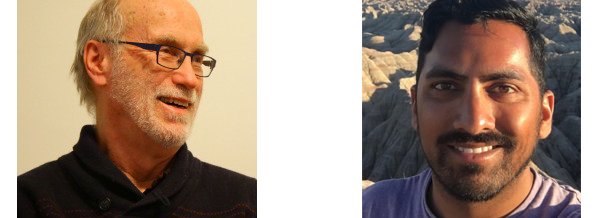We recently sat down with Harold Averill, who has been volunteering with The ArQuives since 1978 as an archivist, and Adam Fernandes, who joined the Gala committee of The ArQuives as the volunteer coordinator in July 2017, to learn about their experiences with the Archives, Toronto and the LGBTQ+/queer community in general. This is what they had to say. 
- How did you find out about the Archives?
Harold: “I came to Toronto in July of 1978 as an archivist at the University of Toronto and one of my fellow archivists…told me maybe two months after I’d arrived that there was a gay archives in Toronto, which I didn’t know anything about.” “He said, ‘the archivists meet in September, and I’ll introduce you to James [Fraser].’ And then he said something very interesting: he said that James had applied for the same job that I got but the University [of Toronto] archivist had decided not to hire him because he was too gay.” “At that point, [the University of Toronto’s archivist] hadn’t learned officially that I was gay…so we didn’t say anything to him until I was off probation.” Adam: Adam volunteers as part of his employer’s internal resource group for LGBTQ+ employees. That’s how he first learned about The ArQuives. “Caitlin [Smith] originally reached out…to us for sponsorship for the Gala, but they also had an opening for the volunteer coordinator for the Gala too.”
- Can you describe what the Archives were like when you joined?
Harold: “When I arrived, it occupied a space maybe 8 feet by about 8 feet behind the receptionist’s desk at the Body Politic, on the top floor of 24 Duncan Street.” “We were part of Pink Triangle Press until after the Bath Raids…The cops came in and raided [the Archives]…they took some of our stuff away, and we didn’t get it back for five years. And that made us realize that we had to incorporate to protect our own resources.” Adam: “[The 34 Isabella St. location is] a staple of the community. It’s right there in the Village, so that’s really nice. The building itself is also very homey. You see a lot of people coming and going, which is nice to see.”
- How would you describe the gay community in Toronto when you joined the Archives, and what is your relationship to it?
Harold: “Well, it was pretty dynamic. It wasn’t large, but it was pretty dynamic. One of the most dynamic parts of the community was the social element through sports, which included the Cabbagetown Group Softball League, which I played in for eleven years.” Harold also recalls the Judy Garland Memorial Bowling League, “which at one time was the biggest bowling league in Canada. It was huge. But it folded about 2004 because nearly everybody had died.” Adam: “I just actually moved back to Toronto from living in Vancouver for the last seven years,” Adam said. “Now I find that within Toronto itself, [the community] is no longer bordered by that Church Street geographical area. We see gay bars and events come across the entire city, and I think that’s really cool. So it’s not just confined to one area. It’s more organically popping up throughout the city.”
- Tell us about your work for the Archives.
Harold: “At the very beginning [of the Archives’ operation], there wasn’t much in the way of papers of individuals or organizations because everything was so young. People hadn’t kept very much…in terms of their activities as gay or lesbian individuals, because they hadn’t been able to be open about it. We’ve actually in some senses drawn our horns in a little bit in that we’ve been fairly careful about some of the things that we take because there’s so much stuff out there and we have to be able to house it.” Adam: “[My] role over the last six months was to recruit [and] organize the volunteers required to run the Gala. That was approximately 20 volunteers, and I helped with their training, their debriefing, their briefing assignments…and then the actual execution on Gala night.” “I thought was crazy to see when they raised $35 000 in ten minutes,” he said about the Gala. “That was really cool to see.”
- How do you get the message out about the Archives today?
Harold: “Where we could we got involved in activities where we would raise our profile. We organized two gay conferences in Toronto and co-organized a conference on Walt Whitman that was held at what was then Erindale college [now the University of Toronto Mississauga] where half the people in attendance walked out after the first person…gave the introductory talk…Not what they were expecting. Certainly not what they were expecting!” Adam: “One thing that brought me on board at least was reaching out to those corporate partners. I don’t know how much I could’ve told you [about the Archives] before I was reached out to.” “Social media is another huge one. As we were preparing for the Gala, simple things like ads on Facebook or ads on Instagram, which don’t cost very much, helped to drive a lot of traffic to The ArQuives website itself.” Despite the ways our communication channels have changed in forty years, Adam still points to simple word of mouth as an important way of connecting with community members: “I’ve been trying to talk about my experience with The ArQuives and volunteering.”

